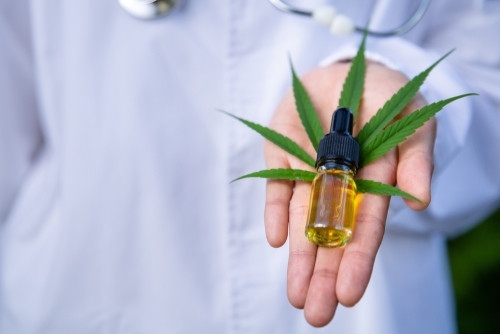
According to the research firm Brightfield Group, the CBD sector is likely to be worth $22 billion in two years. In 10 years, it is predicted to grow at an exponential rate to reach $75 billion. This is especially the case, with technology contributing to many different phases of CBD production. Here, we will look at some key things that affect how technology is shaping and molding the big CBD boom. If you are wondering what the roles of technologies in the CBD industry are, then read on.
Tech-Centered Industrial Hemp Farming
For a traditional process, farming requires a large amount of labor and much tedious work. Unsurprisingly, technology intervenes to streamline a particular number of procedures and tasks. There are more forms of technology than mere tools that increase the speed of tasks like digging, potting, and planting. At a technology-centered industrial hemp farm, you may discover biometric security solutions, RFID tags for plants, and more pieces of tech.
Sensitive and complex tools measure all environmental aspects, which include water, soil, light, and air. Air conditioners, dehumidifiers, barometers, and various monitoring systems all simplify hemp flower drying and processing.
CBD Extraction Technology
While it may be a niche in this industry, modern technology impacts how several compounds are taken out from industrial hemp. The word ‘extraction’ here, refers to the procedure of separating certain useless hemp-based things from the necessary plant compounds like cannabinoids, flavonoids, and terpenes.
Different methods of extraction result in various kinds of CBD goods, which are generally described as concentrates and extracts. A few concentrates like hash are created manually, but technological advances help to make hemp extracts more varied and complex than before.
High-level hemp extraction tools do not come cheap. Moreover, while some forms of these machines may be unsophisticated, it takes scientific consultants and engineers to both calibrate and run top-notch processors.
All of the above results in a complex niche, which will use a big part of that $75 billion forecasts for the sector by 2022. CBD oil, CBD dabs, CBD shatter, CBD wax, and pure cannabinoid-rich cannabidiol oil concentrate are among the different goods made through extraction.
CBD Product Effectiveness And Technology
Technology also streamlines CBD goods for millions of users in the US and elsewhere. Better goods at lower rates that are best for customers, is the most important trade aspect in the so-called ‘free market’ economic system.
Advancements in the technology for the microencapsulation of useful industrial hemp components, like cannabidiol, drive higher cannabinoid bioavailability for users. This means users can obtain more advantages and effects with fewer quantities of cannabinoid products, thereby saving their time and funds.
Custom-made hemp compound blends and recipes also unlock the amazing therapeutic potential of terpenes and cannabinoids in industrial hemp. This plant has over a hundred different useful compounds, each having unique advantages and properties. All hemp varieties express many different ratios and combinations of the components, giving these products distinctive identifying characteristics.
This is a time when hemp rules and regulations relax, the plant compound extraction methods advance, and the scientific knowledge about these compounds grows. At this time, hemp flower suppliers leverage modern technology to satisfy the demand for new terpene and cannabinoid blends from the market.
Augmented Reality and Artificial Intelligence In The Industry
AI, AR, and machine learning comprise some more technologies that help to reshape the cannabidiol segment. Agriculturalists can make soils better, track plants and stock, improve workflows in their facilities, and better understand hemp market trends through big data and artificial intelligence.
When it comes to the marketing and advertising processes, AR offers enterprises an interesting approach to not just modeling and presentation but also retail sales. AR and AI transform the hemp segment into a new and hyper-interesting industry. This changes a once illicit and rebellious counter culture to a hipster-kind health endeavor having all the useful, yet unessential, additional features.
Blockchain And Cryptocurrency In The Industry
Government regulations and policies may have put many barriers before the world’s largest boom after the dot-com bubble, but nothing can halt what is imminent. Banking has been among the biggest aspects of the sector, but several financial institutions have experienced a reasonable number of issues. This is where blockchain technology comes in.
Some CBD enterprises are not legally allowed to work with usual funding and banking. Blockchain coupled with cryptocurrency enables those businesses to buy and move funds with not much oversight or regulation from the government.
Niche Technology For Green Cannabidiol Industry Investors
Any person who seeks the major growth sectors can discover massive opportunities in the many different tech-focussed niches that shape the cannabidiol segment. The CBD related technologies drive market factors, so when it is possible to reach the best position to exploit the opportunities, you could benefit from these.

